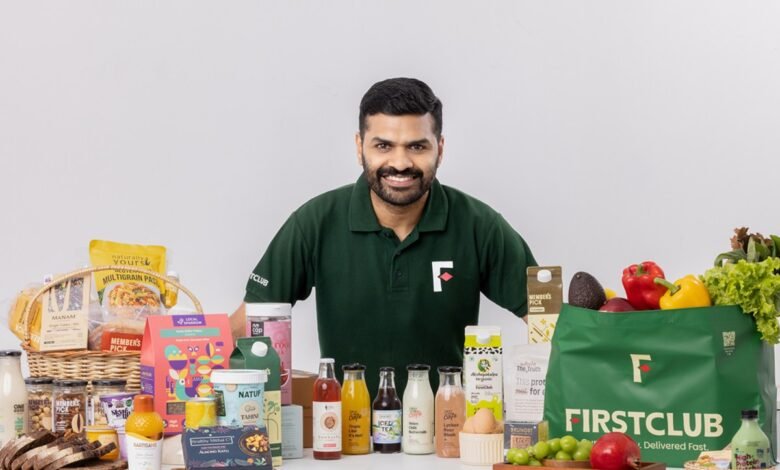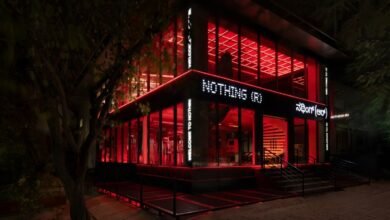FirstClub’s Premium Strategy Defies India’s Speed Obsession, Hits $120M Valuation

▼ Summary
– FirstClub has tripled its valuation to $120 million in just three months after raising $23 million in a Series A round co-led by Accel and RTP Global.
– The startup differentiates itself by focusing on quality and curated premium products for the top 10% of Indian households, rather than competing on delivery speed.
– It operates through four dark stores in Bengaluru, offering over 4,000 exclusive products with an average order value twice that of quick-commerce platforms.
– FirstClub plans to expand into new categories like children’s food, pet food, and nutraceuticals, and aims to open up to 35 clubhouses in Bengaluru this year.
– The company uses a browser-led app experience and bans over 200 harmful ingredients, targeting customers with annual household incomes around ₹1.5 million.
In a market dominated by the race for instant gratification, FirstClub has carved out a distinct niche by prioritizing quality over speed, achieving a remarkable $120 million valuation just months after its launch. The Bengaluru-based startup recently secured $23 million in a Series A funding round, led by Accel and RTP Global, with participation from Blume Founders Fund, 2am VC, Paramark Ventures, and Aditya Birla Ventures. This latest investment marks a significant leap from its $40 million seed valuation in December, underscoring strong investor confidence in its premium-focused approach.
India’s e-commerce sector continues to expand rapidly, with projections indicating it could reach $170–$190 billion by 2030. While quick-commerce players compete on delivery times, FirstClub targets the top 10% of Indian households, approximately 20 million families, with a curated selection of high-quality products. Rather than promising ten-minute deliveries, the company focuses on offering exclusive items and a personalized shopping experience, betting that discerning consumers are willing to wait for superior value.
Operating through four “clubhouses” (dark stores) in select Bengaluru neighborhoods, FirstClub offers over 4,000 carefully chosen products across categories like packaged foods, fresh produce, bakery, dairy, and nutrition. Founder and CEO Ayyappan R, a veteran of Flipkart and ITC, emphasizes that the platform’s success lies in its differentiated selection and exceptional service quality. Early metrics support this strategy: the average order value stands at ₹1,050 (around $12), roughly double that of leading quick-grocery platforms, with a repeat purchase rate of 60%.
A key element of FirstClub’s model is its emphasis on exclusivity and rigorous quality control. The company partners with brands to offer products unavailable elsewhere, with 60% of its inventory being platform-exclusive. A third-party consumer panel conducts blind tests on items like paneer (cottage cheese), allowing only the top-rated products onto the platform. This meticulous curation extends to ingredient standards, the company bans over 200 harmful components from its supply chain.
The app itself is designed for discovery rather than quick searches, encouraging users to browse and explore. This aligns with the company’s audience, which is 70% women, largely from households earning ₹1.5 million or more annually. To maintain its premium positioning, FirstClub enforces a minimum cart value of ₹199, ensuring it attracts serious shoppers aligned with its value proposition.
With fresh capital in hand, FirstClub plans to expand into new categories such as children’s food, pet supplies, and nutraceuticals. It will also launch cafés featuring freshly prepared, not preheated, items within the next month. Over the next six months, the startup aims to introduce home merchandise, including decor, essentials, and utensils. Geographic expansion is also on the horizon, with plans to increase the number of clubhouses to 35 across Bengaluru before entering new cities.
Looking ahead, FirstClub aims to emulate the trusted retail experiences offered by chains like Costco and Whole Foods in Western markets. The company envisions a multi-channel presence, including subscription services, scheduled deliveries, and even offline engagement, possibly inviting customers to visit its clubhouses to witness hygiene and quality standards firsthand.
Currently employing 185 people, including 75 in operations, FirstClub is building a vertically integrated supply chain and tech platform from the ground up. By defying India’s speed-obsessed commerce trend, the startup is proving that there is substantial appetite for a slower, more thoughtful, and premium retail experience.
(Source: TechCrunch)

